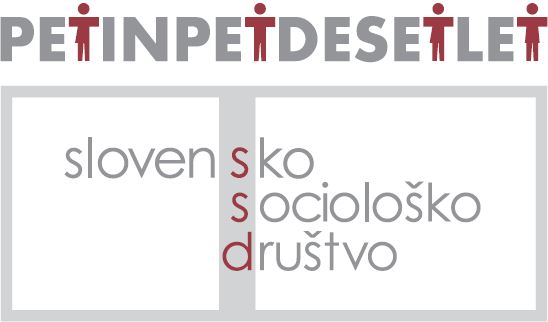Social Science Forum 75 (XXX)
Determinants of voter behaviour at presidential elections in a post-socialist context: the case of Slovenia
Danica Fink Hafner, Mitja Hafner Fink, Gregor Čehovin, Simona Kustec Lipicer
Danica Fink Hafner, Mitja Hafner Fink, Gregor Čehovin, Simona Kustec Lipicer
ABSTRACT: This article attempts to fill the gap in the literature regarding the determinants of voter behaviour at presidential elections in a post-socialist context, taking into acco- unt the changing patterns of competition both within the party system (parliamentary elections) and at presidential elections. Slovenia is taken as a case study of predictors of voting behaviour at presidential elections (1997, 2002, 2007 and 2012) based on bivariate and multivariate methods using Politbarometer public opinion survey data. The key findings are that the predictors of voting behaviour change over time and that party identification has recently been declining in importance as a predictor of voting behaviour at presidential elections.
KEY WORDS: voting behaviour, presidential elections, parliamentary elections, logistic regression model, Slovenia
>> Download
Change in political behaviour during an election campaign
Meta Novak
ABSTRACT: An election campaign is a special sort of information campaign. Election candidates have an opportunity during this time to inform voters about themselves, their positions and programmes. At the same time, voters have an opportunity to acquire information needed to make an informed decision. We were interested to ascertain if during an election campaign any changes in political behaviour can be noticed. We observed a very narrow segment of political behaviour, namely political activation. We used data from the Politbarometer survey from 1996 until 2013 and noticed that during an election campaign the share of non-response to ‘ for whom would you vote’ question and an orientational ‘left-right’ question was lower. That is true for both presidential and parliamentary elections.
KEY WORDS: political behaviour, election campaign, election debate, presidential elections, parliamentary elections
>> Download
Performing masculinity in the 2012 presidential campaign: the case of Borut pahor
Deja Crnović
ABSTRACT: the article examines the presidential campaign of Borut Pahor prior to the 2012 presidential elections by analysing its television and online coverage. Borut Pahor then temporarily took up 46 different occupations, mostly involving manual labour, thus also performing a different masculinity than the one he performed before the election. due to the mediatisation of politics and eventisation of his campaign, Borut Pahor changed from a new man who is mostly concerned with his looks to a working-class man who puts morality, responsibility and hard work first. By focusing on his competence as a manual worker, Pahor simultaneously helped depoliticise the presidential function
KEY WORDS: mediatisation, masculinities, gender performativity, depoliticisation
>> Download
Queer pedagogy: an example of a discussion of the children’s story “and tango makes three” in kindergartens in slovenia
Meta Novak
ABSTRACT: This article presents the concept of queer pedagogies and explains it as a frame enabling discussions about same-sex families in kindergartens and at the same time follows requirements such as criticality, objectivity and pluralism that are the foundation of preschool education. empirical data were gathered from preschool teachers and assistant preschool teachers in 2012 by the author. The results of curriculum analysis indicate that the discussion of
same-sex families could be included in the educational process at various levels. The key finding of the research is that preschool teachers and assistant preschool teachers do not include themes of same-sex families in their discussions with children. In the article, we assume that the (queer) children’s story “And Tango Makes Three”, outlining the everyday life of a same-sex family, represents a best practice and suitable tool that would help preschool teachers and assistants present the notion of same-sex families in a way that is easily perceived by children.
KEY WORDS: queer pedagogy, preschool education, same-sex family, kindergarten,
children’s story “And Tango Makes Three”
>> Download
online communities: typology and fundamental characteristics
Sara Atanasova, Gregor Petrič
ABSTRACT: The social complexity and dynamics of online communities do not allow for them to be unambiguously defined which is why the concept attracts plural definitions and conceptualisations. The purpose of this paper is not to generate the most valid definition of the concept but to form a typology of online communities. Based on a synthesis of key definitions of the concept of online community and a critical evaluation of existing typologies, the paper proposes a new typology of online communities and presents their fundamental characteristics. The presented typology is based on three variables: (1) the prevailing relationship orientation of the online community; (2) the multi-functionality of the online community; and (3) types of online communities. The typology identifies 12 ideal types of online communities which can serve as a heuristic tool for further analyses, research, theorisations and the accumulation of new knowledge about such communities.
KEY WORDS: online community, typology, hybrid online communities, community, heuristic tool
